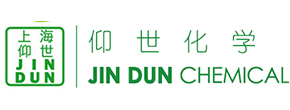Japan revises hydrogen energy strategy, many challenges waiting to be solved
2023/6/19
On June 6, the Japanese government held a ministerial meeting to revise the Hydrogen Basic Strategy formulated in 2017. The Japanese government set a goal to plan for a sixfold increase in hydrogen usage to 12 million tons in 2040; at the same time, the public and private sectors will also jointly invest 15 trillion yen in the next 15 years to promote hydrogen energy applications. In addition, nine technologies, including fuel cells and electrolytic water hydrogen production equipment, have been classified as "strategic areas" and are receiving key support.
To popularize hydrogen energy by "reducing costs and increasing demand
Japanese Minister of Economy, Trade and Industry, Minoru Nishimura, said at a press conference: "Against the backdrop of the energy crisis, hydrogen energy is attracting worldwide attention and countries around the world are competing fiercely in this field. Along with the focus on decarbonization, we hope to support the accelerated spread of hydrogen energy in Japan." He also said that in order to help hydrogen energy "reduce costs and increase demand," the Japanese government will accelerate the development of a support policy to establish a subsidy mechanism for the price difference between hydrogen energy and fossil fuels in order to narrow the price gap between hydrogen energy and fossil fuels.
In addition, the Japanese government has also indicated that it will provide support for hydrogen energy-related research and mass production. It is widely believed that Japan aims to make hydrogen energy a pillar industry in Japan through the revision of the "Hydrogen Basic Strategy", and to expand overseas based on this.
Hiroki Tanaka, a member of the electrolysis commercialization team at Tokuyama, said in a media interview, "I have high hopes for the government's strategy to stimulate demand for hydrogen, and since Japan has a technological advantage in electrolytic water equipment, it is important to find ways to take advantage of this advantage. At the same time, cost competition with overseas manufacturers is intensifying, and we hope to address this issue in cooperation with the public and private sectors."
Lack of national standards triggers a sense of crisis
Japan is known to have an advantage in hydrogen energy technology development and is one of the early countries to implement a hydrogen energy strategy at the national level. Many Japanese companies such as Toyota, Nissan and Panasonic have many patents on hydrogen energy technology, and the revised "Basic Strategy for Hydrogen Energy" even declared in 2017 that Japan will commercialize hydrogen-fueled power generation in about 2030.
However, hydrogen energy is not an area where Japan is the only one. According to the relevant plan, by 2025, China's fuel cell vehicle ownership will reach 50,000, and the amount of renewable energy hydrogen production will reach 100,000 to 200,000 tons per year. For example, the US plans to produce 50 million tons of green hydrogen per year by 2050, while the EU's "REpowerEU" energy transition action program plans to establish a green hydrogen system with an annual production capacity of 10 million tons. At the same time, countries are also actively developing hydrogen-related standards to encourage green hydrogen production and tightening blue hydrogen standards to reduce carbon emissions. In contrast, Japan, which has the advantage of hydrogen energy technology, has not yet issued the relevant national standards, let alone fighting for the international voice of hydrogen energy standards.
An official of Japan's Ministry of Economy, Trade and Industry has revealed a sense of crisis: "Japan may lose to other countries in hydrogen energy."
New energy can hardly solve old problems
This revision of the Hydrogen Basic Strategy also emphasizes that the Japanese government will support technology development related to large ocean-going hydrogen carriers. At present, Japan Kawasaki Heavy Industries Co., Ltd (Kawasaki Heavy Industries) is currently the only enterprise with the technology of ship transporting liquefied hydrogen, and the world's first ship built specifically for transporting liquefied hydrogen completed the first hydrogen-carrying voyage from Australia to Japan in February this year.
However, although hydrogen energy is a new energy source, it has not helped Japan solve the age-old problem of heavy dependence on energy imports. As a country with scarce resources, Japan relies on imports for most of its energy, but it is also one of the countries with the highest energy consumption," said Motohiko Nishimura, executive director of Kawasaki Heavy Industries, vice president of Energy Solutions and Ship Company and Hydrogen Strategy Division. Renewable energy sources already have limited room for development in Japan, and now, in order to reduce carbon emissions in production, Japan has to rely on electrolysis of water to produce hydrogen. It is very difficult to cover Japan's huge energy consumption with renewable energy and domestically produced hydrogen. Without a cheap and stable supply of hydrogen from overseas, Japan will not only be economically passive, but also face energy security risks."
In addition, Motohiko Nishimura also said that the goal of delivering 100% green hydrogen to Japan is also unlikely to be achieved in the short term. Currently, most of the world's hydrogen is gray hydrogen with carbon emissions in the production process, and Japan, as a hydrogen importer, does not have many options. "According to the Japanese government's plan, total hydrogen imports will reach 3 million tons by 2030, with green and blue hydrogen accounting for about 14 percent of the total."
JIN DUN CHEMICAL has built a special (meth) acrylic monomer manufacturing base in ZHEJIANG province. This makes sure the stable supply of HEMA, HPMA, HEA, HPA, GMA with high level quality. Our special acrylate monomers are widely used for thermosetting acrylic resins, crosslinkable emulsion polymers, acrylate anaerobic adhesive, two-component acrylate adhesive, solvent acrylate adhesive, emulsion acrylate adhesive, paper finishing agent and painting acrylic resins in adhesive.We have also developed the new and special (meth) acrylic monomers and derivatives. Such as the fluorinated acrylate monomers, It can be widely used in coating leveling agent, paints, inks, photosensitive resins, optical materials, fiber treatment, modifier for plastic or rubber field. We are aiming to be the top supplier in the field of special acrylate monomers, to share our rich experience with better quality products and professional service.

